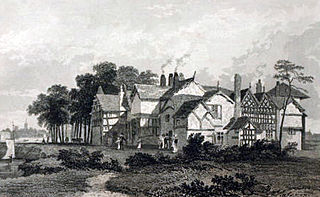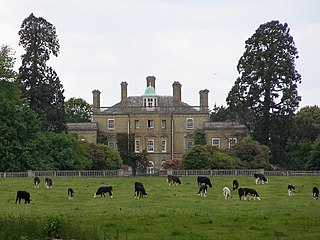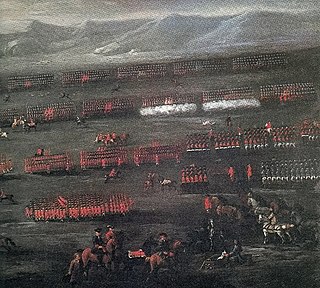
Sir Gilbert Heathcote, 1st Baronet was an English merchant and Whig politician who sat in the English and British House of Commons between 1701 and 1733. He also served as the governor of the Bank of England and was Lord Mayor of London in 1711.

John Smith (1656–1723) of Tedworth House, Hampshire, was an English politician who sat in the English and British House of Commons between 1678 and 1723. He served as Speaker and twice as Chancellor of the Exchequer.

Sir John Heathcote, 2nd Baronet of Normanton Park, Rutland was a British merchant and Whig politician who sat in the House of Commons in two periods between 1715 and 1741.
Sir Henry Bunbury, 3rd Baronet of Stanney Hall, Cheshire was a British Tory politician who sat in the English and British House of Commons for 27 years from 1700 to 1727. At the time of the Hanoverian Succession in 1714 he was a Hanoverian Tory, but later offered support to the Jacobites.
There have been two baronetcies created for persons with the surname Mackworth, one in the Baronetage of England and one in the Baronetage of Great Britain. One creation is extant as of 2008.

Sir John Eyles, 2nd Baronet of Gidea Hall in Essex, was a British financier and politician who sat in the House of Commons from 1713 to 1734. He was Lord Mayor of London in 1726. He served as a Director of the East India Company 1710-14 and again 1717-21 and was appointed a sub-governor of the South Sea Company in 1721.

Sir Justinian Isham, 4th Baronet was an English landowner and Tory politician, who sat in the House of Commons almost continuously from 1685 until his death in 1730. He was the longest serving member, later termed Father of the House, from 1729 to 1730.
Sir Richard Grobham Howe, 3rd Baronet (c. 1651–1730), of Little Compton, Withington and Chedworth, Gloucestershire, and Great Wishford, Wiltshire, was an English landowner and Tory politician who sat in the English and British House of Commons between 1679 and 1727.
Sir Humphrey Briggs, 4th Baronet, of Haughton, Shropshire, was an English Whig politician who sat in the English and British House of Commons between 1701 and 1727.
Sir Nathaniel Napier, 3rd Baronet, of Moor Crichel, Dorset, was an English landowner and politician who sat in the English House of Commons from 1695 to 1708 and in the British House of Commons from 1710 to 1722.
Sir Charles Kemeys, 4th Baronet (1688–1735) was a British Tory politician who sat in the House of Commons between 1713 and 1734.

Sir Willoughby Hickman, 3rd Baronet (1659–1720) of Gainsborough Old Hall, Lincolnshire was a British landowner and politician who sat in the English House of Commons between 1685 and 1706 and in the British House of Commons from 1713 to 1720.
Sir John Cope, 6th Baronet (1673–1749), of Bramshill, Hampshire, was a British banker and Whig politician who sat in the English and British House of Commons for 36 years from 1705 to 1741. He was a Director of the Bank of England from 1706 to 1721.
Sir John Lade, 1st Baronet (1662–1740) was an English brewer and politician who sat in the House of Commons between 1713 and 1727.

Sir John Walter, 3rd Baronet of Sarsden House, Oxfordshire was a British politician who sat in the English House of Commons between 1694 and 1717 and in the British House of Commons from 1708 to 1722.

Sir John Bland, 5th Baronet of Kippax Park, Yorkshire and Hulme Hall, Lancashire, was a British landowner and politician who sat in the House of Commons from 1713 to 1727.

Sir James Worsley, 5th Baronet (1672–1756), of Pylewell Park, Hampshire, was a British landowner and politician who sat in the English and British House of Commons between 1696 and 1741. He tended to support whichever administration was in power.
Sir Tristram Dillington, 5th Baronet of Knighton, Isle of Wight was a British Army officer, landowner and Whig politician who sat in the House of Commons between 1707 and 1721.

Sir John Shaw, 3rd Baronet of Greenock was a Scottish Whig politician who sat in the House of Commons between 1708 and 1734. He was instrumental in the construction of Greenock Harbour, and took part in actions against the Jacobite risings.
Sir Thomas Mackworth, 3rd Baronet was an English politician.









